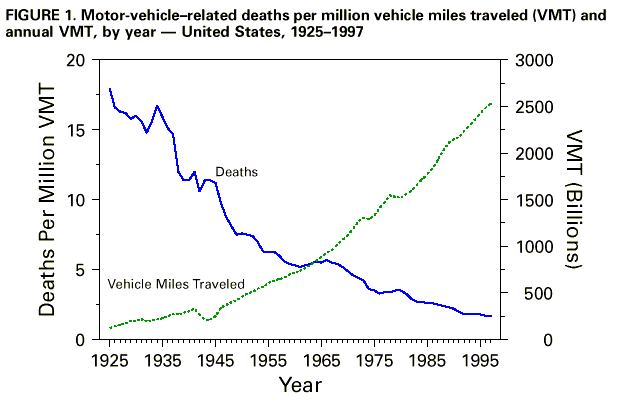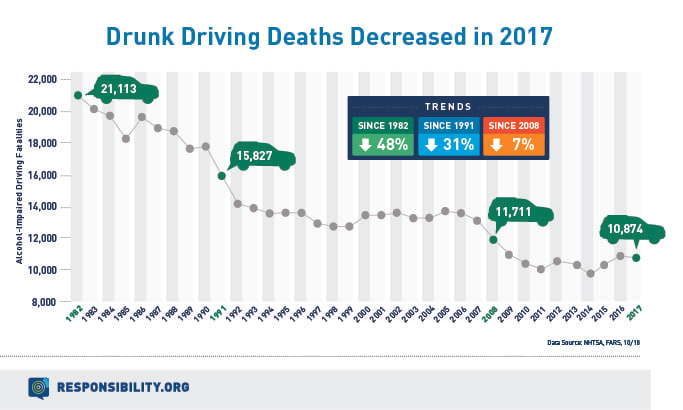Have I gotten more cautious as I've gotten older? Well, I don't know if "cautious" is the right word. It's more that I see our society barreling into things and I get an uneasy feeling of "Can we think about this before we jump in headfirst?"
The primary example in my mind is the new media paradigm with social media. Did we ever think about whether this was a good idea first? Historically speaking, major changes to information dissemination have had BIG impacts. The advent of writing led to Martin Luther and the Protestant Reformation. I'm not against Protestants or Reformations, but the Protestant Reformation was a major shift in geopolitics that shook the Western world. Maybe it was a good thing, but should we make another seismic shift and just hope that it works out? The advent of radio led to a bunch of dictators all over Europe. Again, I'm not against... OK, I am against dictators. We don't need to go into detail on this one. Let's just not repeat it.
What will the advent of social media lead to? I don't know, but if history is our guide, it's likely to be a significant change from the world today. To be clear, I'm not against social media in general. But I've had two reoccurring thoughts about how we handle it as a society:
We should be deliberate and careful with how we integrate social media into our lives.
We are not being deliberate or careful with how we integrate social media into our lives.
Facebook controls the largest share of social media, so let's focus on them. Facebook is a for-profit company. I'm not against for-profit companies in general, but are we sure we want a for-profit company to play such a large role in our society? Was there some society-wide deliberation that went into this? The answer is, of course, "no, we didn't think about this". It just happened. Facebook started as a for-profit company and grew and grew (and bought Instagram) until it became dominant. But even though it's currently the status quo, it doesn't mean we have to keep this model going forward. So let's just think about this question a bit, because it's important. Do we want an organization that plays such a large role to be for-profit?
The relevant difference between a non-profit and a for-profit in this context is that the non-profit optimizes for how much value they bring to the user and a for-profit optimizes for how much time the user spends on the service. Let me provide an example. I have a Facebook account but never check it. However, I still get added to random groups and receive emails about group messages that I haven't seen. Facebook emails me about this yet won't tell me the message, just directs me to open the app to check it. LinkedIn does the same crap. They're not optimizing for how much value they bring to users but instead for how much time they can get users to spend on their sites.
How would a non-profit model be different? Wikipedia is a non-profit and provides a good counter-example. If I don't use Wikipedia for a month, nothing happens. They don’t pester me to check out the latest content. It's still there when I want it and doesn't bother me in between. It's a far better model for the user.
Separate from the business model, have we thought about the psychological effect social media has on people? It's affecting billions of people - shouldn't we dig into whether this effect is good or bad? And if it is bad, or bad in some cases, what guardrails can we put on it?
It takes us a long time to get things right. Maybe there are ways we need to limit ourselves when we use social media. Sometimes these come from the government, like taxes on cigarettes to discourage smoking, but sometimes they come from activists like Rachel Carson or Upton Sinclair. For social media, I'm sure there are more and less healthy ways to use it, even if I don't know exactly what those are. It seems worth figuring out.
Spencer Greenberg is the founder of Clearer Thinking, a site that helps people to "thrive in a complex world using science-based tools". On an 80,000 hours podcast, he said that before he checks social media, he thinks of something he's grateful for. Is this a good idea? Would this work for everyone? I don't know, but I think it's worth a try. Let's see if these techniques help people, especially adolescents, use social media healthily. (Ideally, we'd test it before people got addicted, before depression and suicide rates went up, but we've already missed that chance).
People have been driving cars since the 1910s, but, from my perspective looking back, it seems like they barely thought about safety. According to the CDC, deaths per million miles were about ten times higher when cars were first introduced (see figure below). Seat belts weren't required until 1968. So maybe it’s not too late to put some “safety belts” on social media?
It wasn't until the 1980s and 90s that we got serious about preventing drunk driving. That's 70 years and hundreds of thousands of deaths later. I can't find the number of deaths related to drunk driving going back to the beginning (quite possibly because it wasn't even tracked), but I did find that responsibility.org plotted the NHTSA data since 1982:
There are plenty more examples. The damage caused by adding lead to gasoline was incredibly high. Do we really need to go through a "lead in gasoline" generation with social media before we fix things?
Or think about smoking. We let the tobacco industry do whatever it wanted and it resulted in a nation covered in advertisements for people to take a substance that kills them. Let’s not let this happen again.
Image credit: Stanford University, found through Business Insider
It's not too late to review what we want our relationship with social media to be.






